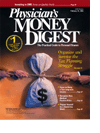PRN: A Road Less Traveled
The Road
Less Traveled
Robert Frost was not known to bethinking of personal finance whenhe wrote his famous poem about options in life. Butmoney affairs mirror all things human,so the analogy is apt enough.
Can you think of an area of humanexperience more filled with "coulda-woulda-shouldas" than money matters?Maybe romance, maybe menus,but you get the point. Our lives are allabout choices and, for too many of ustoo frequently, second-guessing andregrets. When they are warranted, successand the occasional self-congratulationare great, but for frequency ofoccurrence and sheer middle-of-the-nightimpact, nothing beats remorseover missed opportunities and foolishor unlucky choices made. I can just hearthe tsk-tsking now.
Rational Regret
Aside from a perverse satisfaction,the only utile part of financial regret isthat we might rationalize some kind oflearning lesson out of it that we canapply to influence future decisions tohave a more positive outcome—youknow, the old chalk it up to experience.You're probably better at this gamethan I am, because try as I might, I can'tscour one example from memory of amissed opportunity or a bad outcomethat I've been able to improve byrehashing it. Even with things monetary,one definition of insanity might be continuingto do the same things over andover in the same way when they don'twork and hoping for a different result.
What has been helpful to me islearning or trying something new thatsheds a positive light as I keep pluggingaway. After all, hope, even if it isinformed hope, has to pepper our activity;otherwise, what's the point? Weunderstand and work with the fact ofour imperfections and those of ourenvironment, so our best long-term useof hope for financial gain and stabilityis steadfastness of purpose and execution,not our penchant for gettingbogged down in self-criticism.
Focused Energy
In addition to the blind luck of birthor serendipity, the one characteristicthat seems to distinguish some of themost financially well-off people I haveknown is that they have an unusuallyhigh level of energy coupled with analmost laser-like focus in its use.Whatever road they picked, even Frost's"one less traveled by," it has yawnedinvitingly open to them to keep goingforward, not back.
The important thing for us to considereach day when we come to themany forks in the road, both small andbig, may not be just which fork to takeor not take, but that you keep movingahead. Frost knew that regrets aboutwhich road you might have taken areuseless. Just know that the ones you'vetaken and will take have made and willmake "all the difference."
a practicing
physician who is a partner on
the Stanford University Graduate
School of Business Alumni Consulting
Team, teaches in the Stanford
School of Medicine Family
Practice Program. He welcomes questions or
comments at jeffebrownmd@aol.com.
Jeff Brown, MD, CPE,
